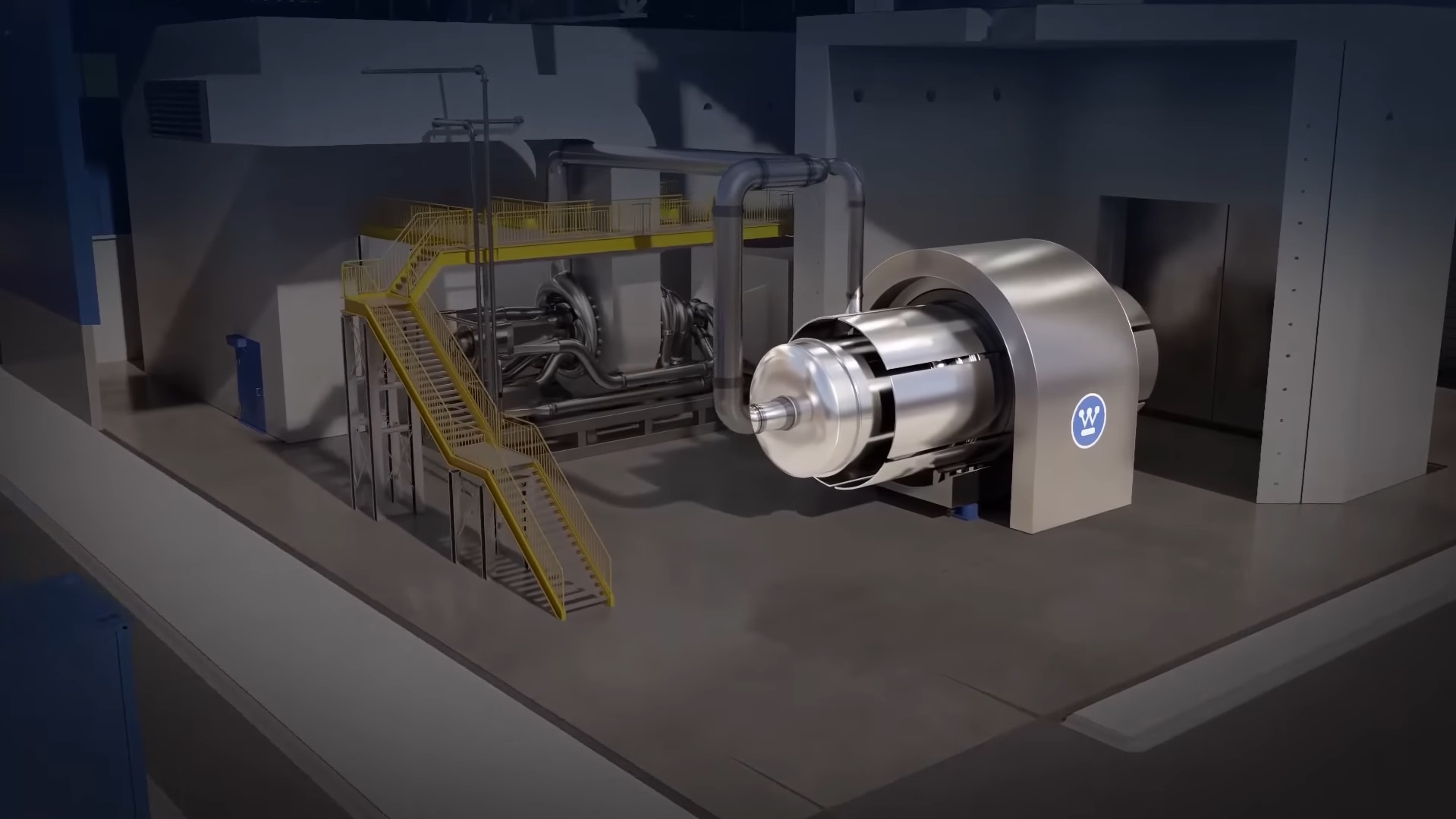Westinghouse's eVinci micro nuclear reactor for data centers delivers 5 megawatts of power for eight years without refueling — microreactors could power next-gen AI data centers
Small, easily transportable nukes could power our data driven future.

The rise of AI has led to an explosion of new data center build-outs, but power consumption has become one of the key bottlenecks to further expansion. That's fueled intense interest in small nuclear reactors that can be built right into newer data centers, such as the new eVinci microreactor from Westinghouse, which is designed to output five megawatts of power and work 24/7 for over eight years without refueling.
Westinghouse Electric Company, one of the leaders in nuclear power plant construction, has submitted its Preliminary Safety Design Report (PSDR) for the eVinci Microreactor to the National Reactor Innovation Center (NRIC) at the U.S. Department of Energy (DOE). This is a crucial step required at the Idaho National Laboratory (INL) so that the eVinci can be deployed for testing at the NRIC’s Demonstration of Microreactor Experiments (DOME) facility. Westinghouse also says that it’s the first company to do so, making it one of the pioneers in microreactor technology.
Some see development in microreactor technology as a crucial strategy to keep our data-driven society moving forward. Many key leaders, including Mark Zuckerberg, say that power supply will constrain AI growth, especially as data centers require more power-hungry GPUs just to process all the data we generate. One report even says that a single modern AI GPU could consume up to 3.7MWh annually — or about the power needs of the average American home for four months.
Aside from Westinghouse, several major AI firms are looking at nuclear reactors to supply their power requirements. This includes Oracle, which has already secured the permits to build three small modular reactors (SMR), and Microsoft, which, at first, was also looking at SMRs for its data centers, but recently just inked a deal to restart the Three Mile Island reactor.
The eVinci microreactor is a unique design in such a way that it arrives at the location as a single unit with few moving parts. You could say it is like a very large battery. This makes it easy to transport and deploy, requiring only a single trailer (and likely some armed escorts) to carry the entire reactor from Westinghouse’s manufacturing facility to where it is required.
Another way the Westinghouse simplified the design of the eVinci was in its use of heat pipes to transfer thermal energy from the nuclear core. This is similar to how some high-performance laptops cool CPUs and GPUs — by using a sealed pipe and using natural convection to move the coolant within.
This microreactor has a target output of five megawatts and is designed to work 24/7 for over eight years. Once the nuclear fuel inside it is spent, Westinghouse will recover it as a complete unit and could even swap it with another one, minimizing the disruption to the facility that uses it. Again, there are parallels with the concept of a battery.
Get Tom's Hardware's best news and in-depth reviews, straight to your inbox.
Nuclear energy is a great solution for all this new demand for clean power. However, there are also risks involved, which, hopefully, have already been addressed by newer technologies like this. Nevertheless, Westinghouse’s eVinci is a promising development, as it will make it easier for data centers to set up shop in faraway places that will not disturb population centers. With that, we could get the computing power we require from data centers without adding stress to our ageing electric grid.

Jowi Morales is a tech enthusiast with years of experience working in the industry. He’s been writing with several tech publications since 2021, where he’s been interested in tech hardware and consumer electronics.
-
Dantte This is not new and your terminology is incorrect. This tech not only "can" power future data centers, it has already been doing it for years! Example: every Microsoft data center that has been built in the US, I think the last 5-years, uses this to power them.Reply -
SirStephenH 8 years? Pfft. Voyager 1 and 2 have been running on nuclear power for the past 47 years without maintenance or refueling.Reply -
TJ Hooker Reply
What exactly are you referring to by "this tech"? Because there are no small modular reactors (SMRs), such as the Westinghouse eVinci discussed in this article, currently in commercial operation in the US. Or anywhere else, other than Russia and China apparently.Dantte said:This is not new and your terminology is incorrect. This tech not only "can" power future data centers, it has already been doing it for years! Example: every Microsoft data center that has been built in the US, I think the last 5-years, uses this to power them.
Edit: Apparently nuclear "microreactors" (like the eVinci) represent a different size class, below what are typically referred to as SMRs. They seem broadly similar though, including that neither are in commercial operation anywhere in the western world. -
SirStephenH Reply
Oh, not much. Just $90 to $120 million apiece.8086 said:How much and when can I get one for my home? -
anoldnewb Reply
not yet. Bill Gates and his energy company are starting construction at their Wyoming site for a next-generation nuclear power plant he believes will “revolutionize” how power is generated.TJ Hooker said:What exactly are you referring to by "this tech"? Because there are no small modular reactors (SMRs), such as the Westinghouse eVinci discussed in this article, currently in commercial operation in the US. Or anywhere else, other than Russia and China apparently.
https://www.pbs.org/newshour/nation/bill-gates-is-breaking-ground-on-a-nuclear-power-plant-in-wyoming -
TJ Hooker Reply
According to Westinghouse's brochure, they use TRISO, a uranium-based fuel formulation.bit_user said:But what fuel do they actually use? Thorium?
https://westinghousenuclear.com/media/iezaio0j/updated-evinci-microreactor-brochure.pdf